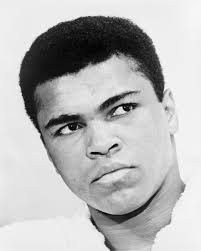
In a way, the Hanoi ceremony of three weeks ago could be said to share a parallel with just any of the legend’s own epic duels that went the distance in the rope square. As visiting President Barack Obama happily announced the lifting of a 50-year arms embargo on Vietnam, it could as well be the declaration by an overly excited umpire in shimmering tuxedo of the scorecard after a fistic explosion before a delirious crowd inside a tense coliseum.
While diplomats on both the American and Vietnamese sides could be pardoned for basking in the effulgence of that electrifying moment that has hopefully finally brought a closure to a bitter memory between Uncle Sam and the South-east Asian nation, the ultimate moral garland undoubtedly belonged to just one man: Muhammed Ali.
Ali’s conscientious objection as a world heavyweight champion in 1966 to being drafted by the US to fight in Vietnam, voiced in a language that spoke to the blacks’ prevailing dire condition in a bitterly segregated America, not only created a moral baggage for the meddlesome super power, it turned out to be the defining moment of his remarkable sporting career.
The omens from the Arizona deathbed last Friday should then not be mistaken. Like the strange night he endured pain and stretched the human will beyond limits in Kinshasa to overpower the monstrosity of George Foreman, Ali soaked all the blows from a cruel Parkinson Disease for more than three decades to witness imperial United States grow penitent and its president stand on the Vietnamese soil to announce a repeal of a punitive policy made 50 years ago.
Not until Obama lifted the symbolic arms embargo against Hanoi last month did “The Greatest” finally take a bow from the ring of life. It was as if he waited for America to be morally pummeled to submission before he agreed to draw his last breath in the Arizona hospital last Friday night.
America’s change of heart was first demonstrated in 1995 with the normalisation of diplomatic relations with Vietnam under the Clinton administration. President Bill Clinton followed that with a state visit in 2000. A reconciliation that was continued by George W. Bush with another visit in 2006. Perhaps, the Medal of Freedom Ali received from Bush in 2006 was to say sorry.
Indeed, had the Swedish Academy in Stockholm itself not become sucked into the vortex of international politics, were the colour of a man’s skin still not a big factor at that age, that singular act of denunciation of war by Ali at a huge personal cost should have earned him a Nobel Peace Prize that decade.
In hindsight, it is probably now much easier to situate such omission. While the Nobel faculty is ordinarily expected to affect the air of independence, it was probably considered to

No comments:
Post a Comment